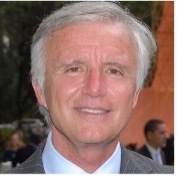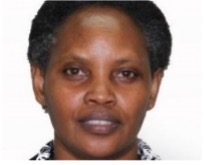Development Challenges in a Post-Pandemic Africa
Despite relatively low numbers of Covid-19 cases and victims in Africa – though the third wave has caused an uptick in the spread of the virus – the pandemic has had severe repercussions on the continent’s societies and economies. Extreme poverty levels rose, erasing progresses made over recent years, while negative (or stagnating) growth rates have both put pressure on African states over the sustainability of their debt obligations and undermined future prospects for development. Looking at a post-pandemic continent, African governments will need to secure financial support from international donors and partners to address development challenges: creating quality jobs, filling infrastructure gaps, stimulating intra-African trade as a way to strengthen competitiveness abroad are but a few of the policy strategies necessary to get Africa back on a development path over the next few years. What could be the role of European and other international partners in supporting those processes? How will the digital transformation impact African economies and societies? Is there room to promote a green and sustainable recovery?
This webinar will be organized by the Policy Center for the New South and Istituto per gli Studi di Politica Internazionale (ISPI) in collaboration with the Organisation for Economic Co-operation and Development (OECD), and represents the first of three conference of the EU-Africa Initiative.
Please click here to register.
Keep me informed-

Federico Bonaglia, Deputy Director of the Development Centre (DEV), OECD
Federico Bonaglia is Deputy Director of the Development Centre (DEV) at the OECD. He supports the Director in establishing the strategic directions and implementing the Programme of Work of the Development Centre. He provides leadership to strengthen the Development Centre’s engagement and impact with Africa, Latin America and global governance processes, as well as in several thematic areas such as migration and development, natural resources or territorial development.
Prior to this, Mr. Bonaglia was Senior Counsellor to the Director and led the Centre’s Policy Dialogue Division. In this capacity, he was responsible for strengthening the Development Centre’s engagement with governments and non-state actors, to raise its impact on policy making, and represented the OECD in the G20 Development Working Group.
His career at the OECD started in 1999, when he first joined the Development Centre as an economist. He has been involved and led several projects on the economic and institutional consequences of globalisation for developing countries in Africa, South-East Asia, Central America, the Black Sea and Central Asia regions. His research interests focus on international trade and investment, as well as structural reforms, private sector development and agriculture.
-

Giovanni Carbone, Head of the Africa Program, ISPI
Giovanni Carbone is Head of the ISPI Africa Programme and Professor of Political Science at the Università degli Studi di Milano. His research focus is the comparative study of politics, geopolitics and economic development in sub-Saharan Africa, with particular regard to political institutions.
Giovanni was previously a Research Associate at the Crisis States Programme of the London School of Economics and the Principal Investigator of a European Research Council (ERC) project. He edited and co-authored a report commissioned by the Italian Ministry of Foreign Affairs on Italy’s policy in Africa, focusing on business opportunities in emerging sub-Saharan economies (La Politica dell’Italia in Africa. Contesto, interessi e scenari della presenza politica e economica italiana nell’Africa subsahariana, ISPI, 2013).
His publications include: Political Leadership in Africa, Cambridge University Press (forthcoming 2018; co-authored with A. Pellegata); Are lions democrats? The impact of democratisation on economic growth in Africa, 1980-2010 (Democratization, 2016, co-authored with V. Memoli and L. Quartapelle); Leoni d’Africa. Come l’Italia può intercettare la crescita subsahariana (2015, co-authored with M. Montanini); L’Africa. Gli stati, la politica, i conflitti (2012, II ed.)
-

Karim El Aynaoui, Executive President, Policy Center for the New South
-

Giuseppe Mistretta, Principal Director for the Countries of Sub-Saharan Africa, Ministry of Foreign Affairs and International Cooperation – Italian Presidency G20
Giuseppe Mistretta has been Ambassador of Italy in Angola and in Ethiopia, and has spent twenty years of his professional life in Africa. Presently he is Director for Sub-Saharian Africa at the Italian Ministry of Foreign Affairs and International Cooperation. He is the author of several books, such as Un ponte lungo quattro secoli (Gangemi, 2013), Angola. Un paese moderno nel centro dell’Africa (Polaris, 2014) and I noti ospiti (Greco&Greco, 2018). He has also been a contributing editor to La Repubblica and Corriere della Sera national newspapers and to the monthly magazine Capital. Africa’s pathways (Luiss University Press, 2021) is his first book to be translated into English.
-

Rose Ngugi, Executive Director, Kenya Institute for Public Policy Research and Analysis (KIPPRA)
Rose Ngugi is the Executive Director of the Kenya Institute for Public Policy Research and Analysis (KIPPRA) and serves as the Secretary to the Board. She is involved in providing technical guidance and capacity building on policy and strategy formulation to the Government of Kenya and other stakeholders, with the overall aim of contributing to the achievement of national development goals. Before then, she was a Senior Advisor in the Office of Executive Director, Africa Group 1, International Monetary Fund, and Washington D.C. Dr. Ngugi has been a member of Central Bank of Kenya, Monetary Policy Committee and has vast teaching experience in the University of Nairobi, School of Economics. Dr Ngugi has published widely. Her research interests are in public policy, financial sector, investments, reforms and institutional issues. She holds a PhD from Business School Birmingham University, UK specializing in Financial Markets, a Masters and Bachelors degree in Economics from the University of Nairobi, Kenya.
-

Elizabeth Sidiropoulos, Chief Executive, South African Institute of International Affairs (SAIIA)
Elizabeth Sidiropoulos has been SAIIA’s Chief Executive since 2005. With more than 26 years of experience in the field of politics and international relations, Elizabeth’s expertise lies in South Africa’s foreign policy, South-South Cooperation and the role of emerging powers in Africa.
She is a regular commentator in South African and foreign media. She has published on various aspects of South Africa’s foreign policy including on its peace-making model as a key dimension of its soft power, its development diplomacy and edited a volume on SA’s foreign policy in the first decade of democracy – Apartheid Past, Renaissance Future (SAIIA, 2004). She has also co-edited two books exploring the rise of the new development cooperation providers: Development cooperation and emerging powers: New Partners or Old Patterns (Zed Books, 2012) and Institutional Architecture and Development: Responses from Emerging Powers (Jacana, 2015). She is the editor-in-chief of the DHET accredited South African Journal of International Affairs.
She is the co-chair of the Think 20 Africa Standing Group, one of the task forces of the Think 20, which is one of the engagement groups of the G20. She is co-editor of a volume on ‘A SA foreign policy for the 2020s’, which has been published in 2019.









